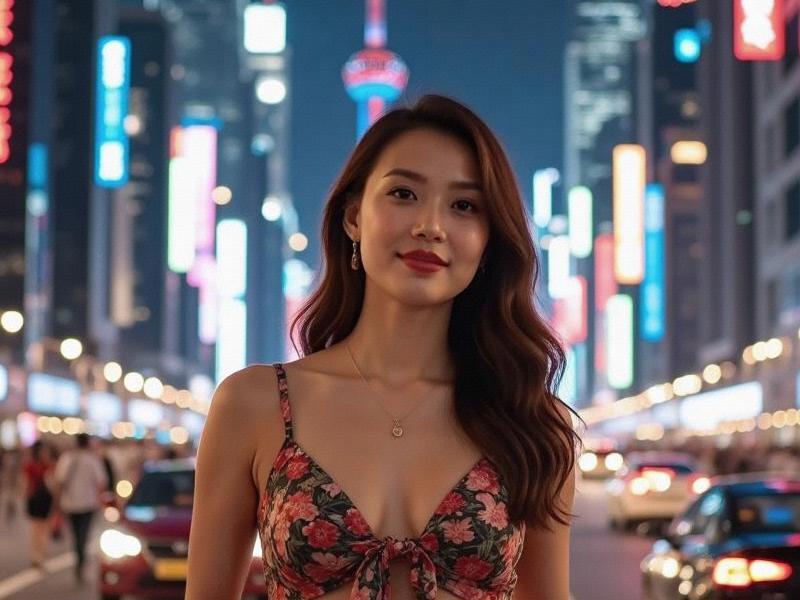This feature explores how Shanghai women have developed a distinctive urban identity that blends traditional Chinese values with modern global influences, creating a new paradigm of Asian femininity.

The streets of Shanghai tell a story of feminine evolution. From the qipao-clad socialites of 1930s Bund to today's power-suited executives in Lujiazui, Shanghai women have long embodied China's most cosmopolitan femininity. What makes the modern Shanghai woman unique is her ability to balance multiple identities - traditional daughter, devoted mother, career professional, and fashion icon - with remarkable grace.
Historical Roots of Shanghai Femininity
Shanghai's feminine ideal traces back to the Jiangnan culture of the Ming and Qing dynasties, where women were educated in arts and literature. This tradition merged with Western influences during the concession era, creating the "Haipai" (Shanghai-style) culture that prized sophistication and worldliness. "Shanghai women have always been China's most independent feminine archetype," explains cultural historian Dr. Li Wenjing. "Even during conservative periods, they maintained financial autonomy through business or craftsmanship."
The Modern Career Woman
爱上海同城419 Today, Shanghai boasts China's highest percentage of female executives (38% in senior management positions according to 2024 data). Women like Helen Zhu, CFO of a major tech unicorn, exemplify this trend. "Shanghai doesn't just tolerate ambitious women - it expects us to lead," Zhu remarks during our interview in her Jing'an office. The city's legal and financial sectors show particular gender parity, with women occupying 45% of partner positions in top law firms.
Fashion as Cultural Expression
Shanghai's fashion scene reveals how local women navigate global trends. The "Modern Cheongsam" movement, led by designers like Vivian Hu, updates traditional qipao with contemporary cuts for professional settings. At the same time, street style in areas like Anfu Road blends international luxury brands with local designers' creations. "Shanghai women treat fashion as personal branding," observes Vogue China editor Margaret Zhang. "Their outfits communicate both cultural roots and global citizenship."
上海龙凤419自荐 The Marriage Paradox
Despite their professional success, Shanghai's "leftover women" phenomenon persists. The city has China's highest average marriage age (32.1 for women in 2024) and growing numbers choosing singlehood. Matchmaker Wang Lili notes: "Educated Shanghai women refuse to 'marry down' economically, but equally value partners who respect their careers." This has spurred a rise in "two-city marriages" where couples maintain separate residences in Shanghai and Suzhou/Hangzhou.
Cultural Preservation and Innovation
Shanghai women lead in reviving traditional arts while innovating new forms. Tea ceremony master Lin Xi (35) runs a popular YouTube channel teaching young professionals to host ceremonies, while digital artist Mia Chen creates VR installations reimagining Jiangnan garden aesthetics. "Our generation doesn't see tradition and modernity as opposites," Chen explains during her M50 gallery exhibition.
上海花千坊龙凤
The Future of Shanghai Femininity
As Shanghai positions itself as a global innovation hub, its women face new challenges. The "Double Pressure" study (Fudan University, 2024) found Shanghai working mothers spend 4.2 hours daily on childcare (versus 1.8 by fathers). Yet the same study noted 73% of women report high life satisfaction, citing the city's childcare support systems and cultural acceptance of working mothers.
From the lilting Shanghainese dialect to the confident click of heels on Nanjing Road, Shanghai women continue to redefine what it means to be modern, Chinese and female. As the city evolves, so too does this distinctive feminine identity - rooted in history yet constantly reinventing itself for new eras.